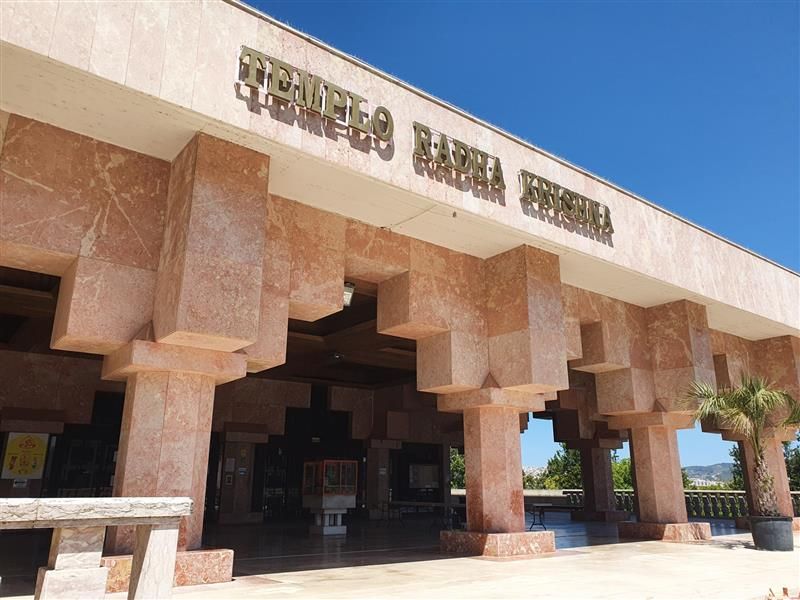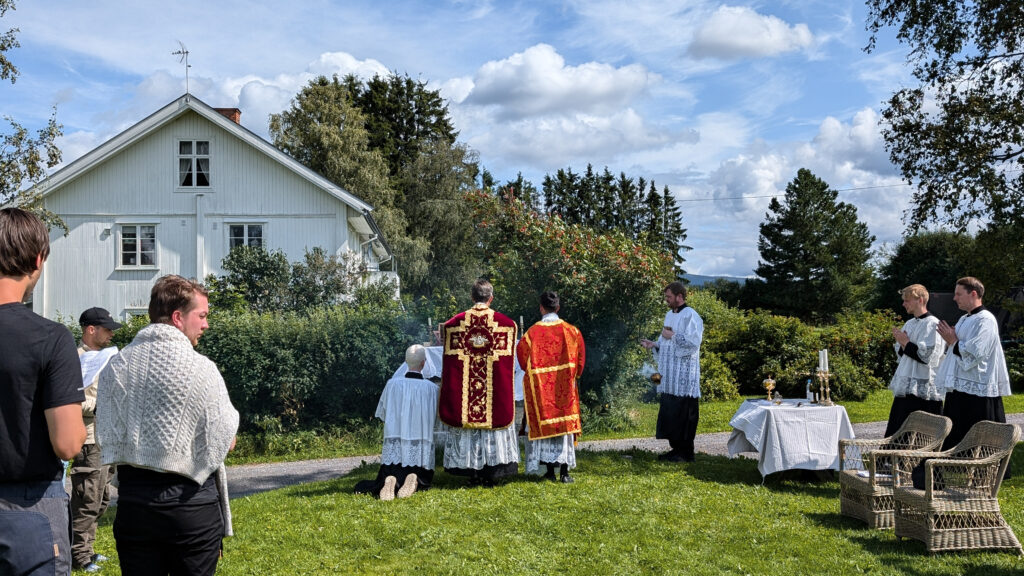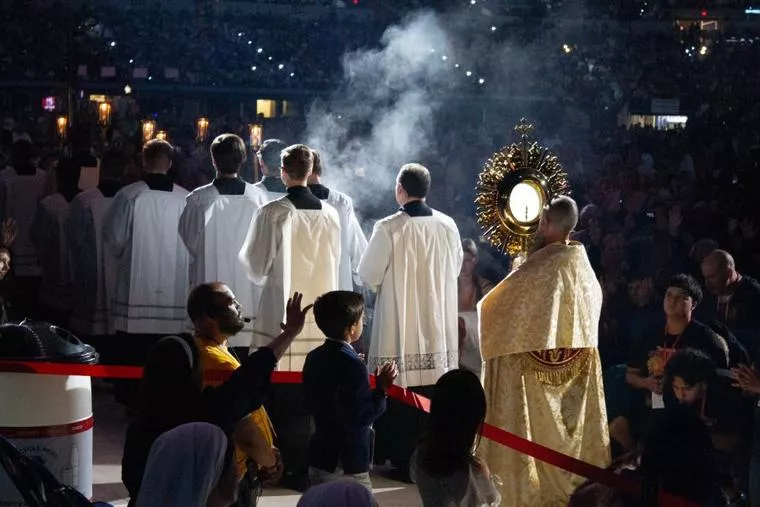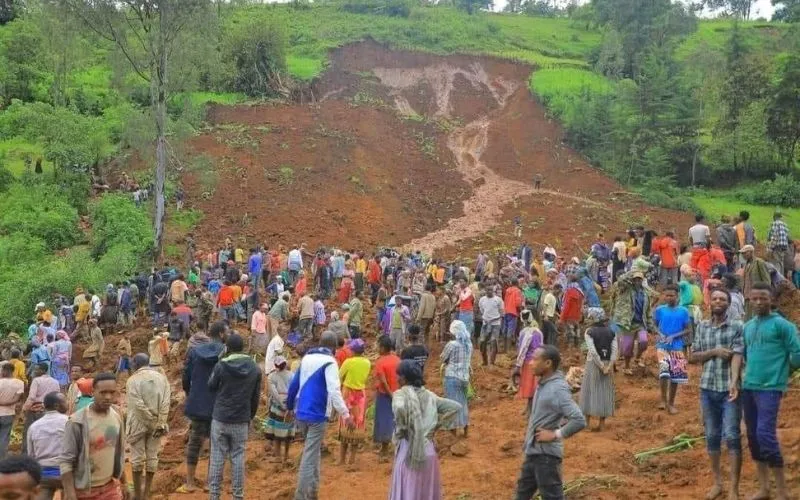Lisbon, Portugal, Aug 10, 2023 / 13:20 pm (CNA).
During World Youth Day in Lisbon, Portugal, last week, pilgrims had the opportunity to participate in an initiative called “Spiritual Routes,” which included guided visits to a Muslim mosque, Hindu temple, Jewish synagogue, and three historic Catholic churches.
A one-hour tour of the Radha Krishna Temple on Aug. 4 included explanations of the religious symbols in the temple and basic Hindu beliefs. There was also an open exchange with the tour’s leader, a member of the Lisbon Hindu community, about Catholic beliefs and traditions.
The tour of the temple was offered multiple times a day Aug. 2–4, but organizers informed CNA the final day that only eight people had participated. Meanwhile, an average of 200 pilgrims per day visited the Central Mosque of Lisbon Aug. 1–4.
The grounds of the Radha Krishna Temple where an open exchange with a member of the Lisbon Hindu community took place Aug. 4, 2023, about Catholic beliefs and traditions. Photo credit: Hannah Brockhaus/CNA
The timing of the visits and the locations of the religious buildings may have had an influence on attendance. The Hindu temple was more than four and a half miles — a 20-minute drive — from the center of Lisbon, while the mosque was just a 10-minute walk from Parque Eduardo VII, the location of the main WYD events Aug. 1–4.
Poor advertising may also have contributed: Several pilgrims questioned by CNA said they didn’t know about interreligious activities at World Youth Day. Teresa Ngo, 33, from Atlanta, said she followed the main WYD schedule but did not see any information about them.
A 23-year-old pilgrim from Portugal, Luis Graca, said he heard about some of the interreligious activities after they happened but not before.
Besides the visits to religious buildings, initiatives included a tree planting on Aug. 2 and musical events led by groups from different religious backgrounds.
Cardinal Manuel Clemente, patriarch of Lisbon, highlighted the interreligious and ecumenical aspect of WYD in his homily at the event’s opening Mass on Aug. 1.
“Welcome all!” he said in Lisbon’s Parque Eduardo VII. “Welcome also in the ecumenical, interreligious, and goodwill breadth that these days have and also bring together. I desire for you all to feel ‘at home,’ in this common home where we will live World Youth Day.”
The priest who oversaw the interreligious activities during WYD said it was important to him that it was still clear that the international gathering is an event “called by the pope and run by the Catholic Church.”
Father Peter Stilwell, who is in charge of the Committee for Ecumenical Dialogue in the Lisbon Patriarchate, told the National Catholic Register that “just because interreligious dialogue is difficult doesn’t mean that it can’t happen.”
“My personal experience working in the interreligious field has been that meeting other religions and people from other religions has made me more aware of what is my particular Christian tradition,” he said.
Another building on the grounds of the Radha Krishna Temple where a tour Aug. 4 for WYD 2023 pilgrims included explanations of the religious symbols in the temple and basic Hindu beliefs. Photo credit: Hannah Brockhaus/CNA
As part of the “Youth Festival” program of World Youth Day, the KAICIID Dialogue Centre, an intergovernmental organization based in Lisbon, organized several events aimed at interreligious dialogue: a panel discussion with religious representatives from different continents, a screening of a documentary about Catholic Justine Auma’s involvement in the Catholic Church and interreligious dialogue in Uganda, and the chance to play a board game about dialogue with other young people.
On Friday, Aug. 4, several young fellows of the interreligious center had the opportunity to meet Pope Francis at the apostolic nunciature.
Elena Dini, from Rome, participated in the panel discussion on Aug. 1. A Catholic, Dini is senior program manager of the John Paul II Center for Interreligious Dialogue.
A rabbi from Argentina, a young Muslim woman from Tunisia, a Buddhist monk from Myanmar, and a Greek Orthodox woman from Lebanon also made up the panel.
Dini said about 100 people attended the panel discussion, while 240 came to watch the documentary and approximately 210 participated, over two days, in playing the dialogue board game.
“Some of the young people who participated in these activities already had experience in interfaith dialogue and some did not,” she explained.
Dini told CNA there was a lot of positive feedback from participants in the activities, including the idea, mentioned several times, of having a kind of WYD-type event for young people of different religious traditions.
She also recalled having a lengthy discussion with a young Catholic woman who saw the model of dialogue as a useful tool to use with different groups within the Catholic Church itself.
“She, for example, suffers greatly from the division in the Catholic world between different communities that speak ill of each other because they think differently with respect to certain issues, pray differently, have different political orientations,” Dini said. “For her, the dialogue she saw with our activities these days and the model we offered in interacting with those who are different … begins in the Catholic world.”
Dini also found it moving to attend the opening Mass of World Youth Day with a Buddhist and Muslim. “These are the moments that make us all grow in knowledge, in sharing, in faith, in recognizing that God is always acting,” she said.
“As I had the opportunity to share during the panel, for me WYD 2000 was a turning point in my personal faith life, and to be back at a WYD to speak to young people about how faith and dialogue are not contradictory and how for me God speaks in both dimensions of my life was nice.”




